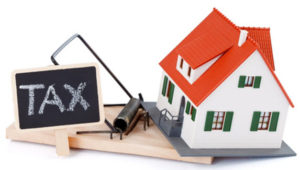Second in my legislative priorities list for 2019 is meaningful local property tax reform in which taxing authorities are significantly limited in how much they can annually raise your taxes without approval, by ballot, of those being taxed. Property appraisal reform is important as well but second to the tax raising issue.
A year ago, Governor Greg Abbott proposed a 2.5 percent revenue cap which would apply separately to all taxing entities including cities and school districts. It’s a property-tax-stream revenue cap as opposed to a limit on local tax rates.
Under the 2.5 percent local government revenue cap, only existing non-improved property would be counted. New growth would rightly remain outside of the cap as it does now when factoring the effective tax rate.
Under the Abbott plan, to override the 2.5 percent cap, a city council, commissioners’ court, or school board would have to vote to do so with a two-thirds margin which would then place it before voters for approval.
Putting in place a low enough to be meaningful cap on local property tax increases and giving those being taxed the power to accept or reject big tax increases is the ultimate and proper meaning of local control. This is true despite the caterwauling of local officials who define local control as they having full control over you and your pocketbook.
Legislative priority #2: Meaningful local property tax reform with caps and votes
A year ago, Governor Greg Abbott proposed a 2.5 percent revenue cap which would apply separately to all taxing entities including cities and school districts. It’s a property-tax-stream revenue cap as opposed to a limit on local tax rates.
Under the 2.5 percent local government revenue cap, only existing non-improved property would be counted. New growth would rightly remain outside of the cap as it does now when factoring the effective tax rate.
Under the Abbott plan, to override the 2.5 percent cap, a city council, commissioners’ court, or school board would have to vote to do so with a two-thirds margin which would then place it before voters for approval.
Putting in place a low enough to be meaningful cap on local property tax increases and giving those being taxed the power to accept or reject big tax increases is the ultimate and proper meaning of local control. This is true despite the caterwauling of local officials who define local control as they having full control over you and your pocketbook.